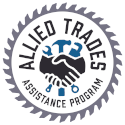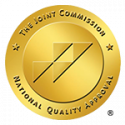Are you or a loved one in addiction recovery and struggling to rebuild trust with your family and friends? Substance abuse disorder can damage relationships with friends and family. Those struggling with addiction may prioritize obtaining more drugs over the safety and well-being of themselves and loved ones, resorting even violent or harmful behavior.
In this article, we’ll explore ways to rebuild trust between yourself and your loved ones during addiction recovery. We’ll discuss how communication is key, the importance of setting boundaries, and how to take responsibility for your actions. By following these tips, you can help create a supportive environment during the process of rebuilding trust. Let’s get started!
1. Learn to Communicate Effectively
Communication skills are key to any successful relationship, and it is especially important when rebuilding trust in your recovery journey. Make sure that you are open and honest about your feelings and thoughts, even if it’s uncomfortable or difficult. If you don’t feel comfortable talking with your loved ones face-to-face, consider writing a letter or sending an email instead. This can help you express yourself without the stress of an in-person conversation.
2. Set and Respect Boundaries
During addiction recovery, it is essential to set healthy boundaries with your loved ones. These boundaries should be based on mutual respect and understanding of each other’s needs. Boundaries created by family and friends provide safety and protection from enabling behaviors or codependencies. It is crucial to respect and honor these boundaries to rebuild broken relationships. Be sure to communicate clearly what each person expects from the other so that everyone feels comfortable and safe.
3. Take Responsibility for Your Actions
Taking responsibility for your actions is essential to rebuilding trust with your loved ones. Apologize if you have wronged them, and show them that you are taking steps to make amends. Be honest about past mistakes, and take steps to ensure that they won’t happen again in the future. Assuming responsibility for your recovery involves being responsible for actions that harmed those around you. It is important to demonstrate to family members and loved ones that you are committed to your choices and that you accept personal responsibility for your recovery.
4. Have Patience With the Process
Conquering substance use disorders is brave, but the journey to recovery can take time. Even if you’re ready to start over, your loved ones are also walking their own path of healing and must rebuild trust in their own time. It’s important to remember that the only things you can control are your own feelings and actions as your loved ones come around. In the meantime, don’t be discouraged–be gentle and keep communicating.
5. Start Small
To rebuild trust in recovery, it is important to be available within set boundaries and increase dependability. It is advisable to start with small commitments, such as being punctual for visits, assisting with household chores, and remembering significant dates and anniversaries, rather than overwhelming oneself with high-pressure responsibilities.
Regaining trust is a gradual process that requires effort and patience. It cannot be expected to happen overnight, and it’s important to understand that people’s past experiences have made them cautious. Giving them space and time to rebuild their trust in you is the best way forward.
6. Have Faith in Yourself
Unlocking the power of self-trust is key to restoring trust in your relationships. Those pesky doubts about your ability to show up, follow through, and be the best versions of yourself may crop up, and that’s normal. But that doesn’t make them true! Past mistakes don’t need to define you! Look back at your recovery journey and see how far you’ve come. Pat yourself on the back for your achievements, self-growth, and progress.
7. Seek Professional Treatment
If rebuilding broken trust with your loved ones feels too difficult or overwhelming, it may be beneficial to seek professional help. A therapist or counselor can provide support and guidance as you work on repairing the relationships in your life during your recovery process. At Sobriety Solutions, we offer family therapy sessions in order to help those in recovery and their loved ones to have the hard conversations.
Are you or a loved one seeking help for addiction treatment? Reach out at (833) 349-2009; we’ll be waiting for your call.
Rebuilding trust on the road to recovery isn’t easy, but it is possible with patience, hard work, and commitment. By following the tips outlined in this article, you can take the steps necessary to restore relationships with your loved ones. Honest communication is key, so make sure that you are open about your feelings. Additionally, setting boundaries and taking responsibility for your actions can help create a supportive environment. Finally, if needed, seek professional help to provide additional guidance and support during this process.









